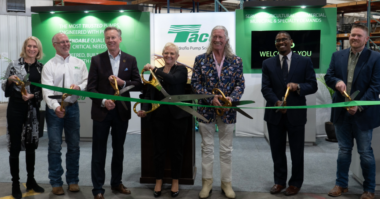The American Water Works Association today praised the U.S. Environmental Protection Agency’s new rule to reduce pollutants from steam electric power plants, noting that the final rule contains significant improvements in addressing bromide discharges.
EPA on Wednesday announced the first-ever national limitations for pollutants under the Clean Water Act to control the amount of heavy metals, nutrients and other pollutants that steam power plants discharge into rivers and lakes, many of which serve as drinking water sources.
“This rule is a great example of using the Clean Water Act to potentially minimize degradation of drinking water sources and to protect public health,” said Tracy Mehan, AWWA Executive Director of Government Affairs. “AWWA members played a key role in the rulemaking process. It’s gratifying that EPA listened carefully to the water community’s comments and incorporated them.”
The new limitations will prevent 1.4 million pounds of pollutants from being discharged into U.S. waters every year, protecting many precious drinking water sources.
For drinking water providers, increased bromide discharges from wet scrubbers – equipment that uses spray droplets to control particulates, sulfur dioxide and other air pollutants — was the primary concern in the proposed rule. AWWA analyses found that several hundred drinking water intakes were downstream of power plants where wet scrubbers were being used or could be used for future compliance with the steam power plant rule. With increased bromide discharges, water systems could struggle to comply with disinfection by-product regulations, because additional bromide in raw water reacts with chlorine to form higher levels of brominated DBPs. Estimated national compliance costs for water systems to install additional treatment could have cost millions of dollars per year.
The final rule recommends that, depending on site-specific conditions and applicable state water quality standards, it may be appropriate for permitting authorities to establish water quality-based effluent limitations on Total Dissolved Solids or bromide, especially where steam power plants are located upstream from drinking water intakes.
Established in 1881, the American Water Works Association is the largest nonprofit, scientific and educational association dedicated to managing and treating water, the world’s most important resource. With approximately 50,000 members, AWWA provides solutions to improve public health, protect the environment, strengthen the economy and enhance our quality of life.





Comments